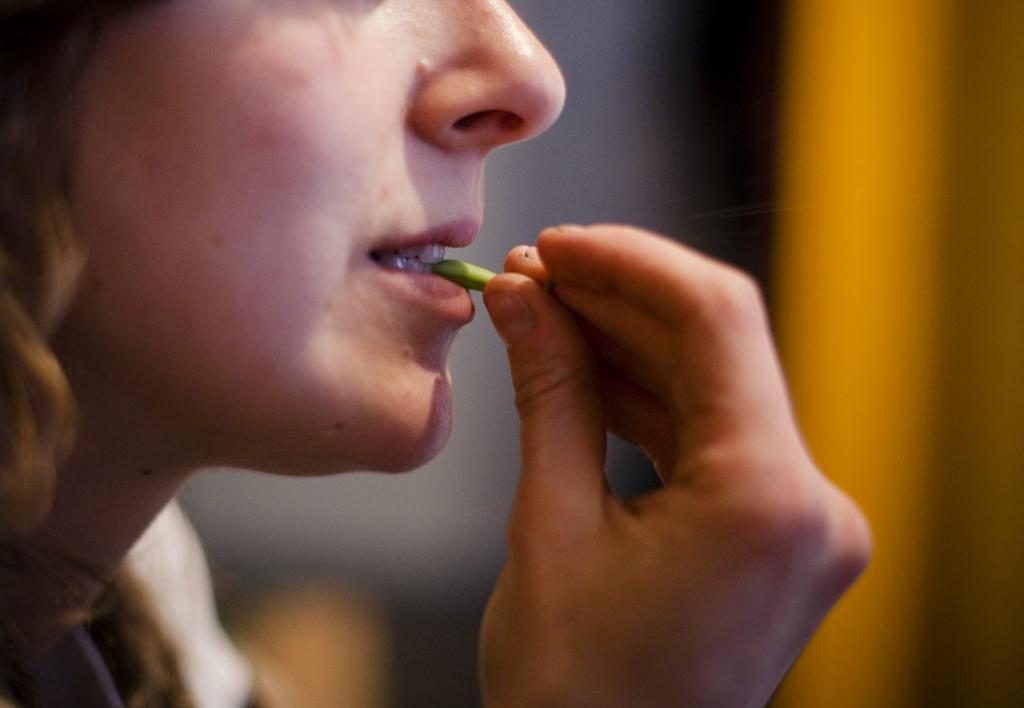A woman who has undergone treatment for breast cancer and is told she is cancer-free remains concerned that it will recur. Now, a new study has found that prolonged nightly fasting may reduce the risk of a recurrence. The findings were published online on March 31 in the journal JAMA Oncology by researchers at the University of California, San Diego.
The study authors note that स्तन कैंसर is the most common cause of cancer mortality among women in developing nations and the second most common cause of cancer mortality in developed nations. Some researchers suggest that a healthy diet will reduce breast cancer recurrence, others disagree. A significant amount of research is focused on what to eat to prevent cancer, such as specific foods, food groups, or dietary patterns. Recently, a new theory has been presented that when a person eats also matters; research has shown that the timing of food intake influences metabolic health and cancer. Some rodent studies have found that that recurring, prolonged (16-hour) fasting during the sleep phase protects mice who were fed a high-fat diet against abnormal glucose metabolism, inflammation, and weight gain, all of which are related to poor cancer outcomes.
The objective of the new study was to assess whether duration of nightly fasting predicted recurrence and mortality among women with early-stage breast cancer and, if so, whether it was associated with risk factors for poor outcomes, including regulation of glucose levels (hemoglobin A1c), chronic inflammation (C-reactive protein), obesity, and sleep. The study group comprised 2,413 women with breast cancer but without diabetes who were aged 27 to 70 years at diagnosis and participated in the prospective Women’s Healthy Eating and Living study from March 1, 1995 through May 3, 2007. Data analysis was conducted from May 18 through October 5, 2015.
Nightly fasting duration was estimated from 24-hour dietary recollection, collected at study onset, year 1, and year 4. The main outcome measurements were invasive breast cancer recurrence and new primary breast tumors during an average of 7.3 years of study follow-up as well as death from स्तन कैंसर or any cause during an average of 11.4 years of surveillance. Baseline sleep duration was self-reported, and blood samples were used to measure levels of hemoglobin A1c and C-reactive protein.
The researchers found that the women reported an average fasting duration of 12.5 hours per night. Statistical analysis revealed that fasting less than 13 hours per night was associated with an increase in the risk of breast cancer recurrence compared to fasting 13 or more hours per night. Nightly fasting less than 13 hours was not associated with a statistically significant higher risk of breast cancer mortality or a statistically significant higher risk of all-cause mortality (death from any cause). Each two-hour increase in the nightly fasting duration was associated with significantly lower hemoglobin A1c levels and a longer duration of nighttime sleep.
The authors concluded that prolonging the length of the nightly fasting interval may be a simple, nonpharmacologic (non-drug) strategy for reducing the risk of breast cancer recurrence. They suggested that improvements in glucose regulation and sleep may be mechanisms associating nightly fasting with breast cancer prognosis.



